The Grisha Trilogy: Magic, Politics and the Nature of People
What is infinite?
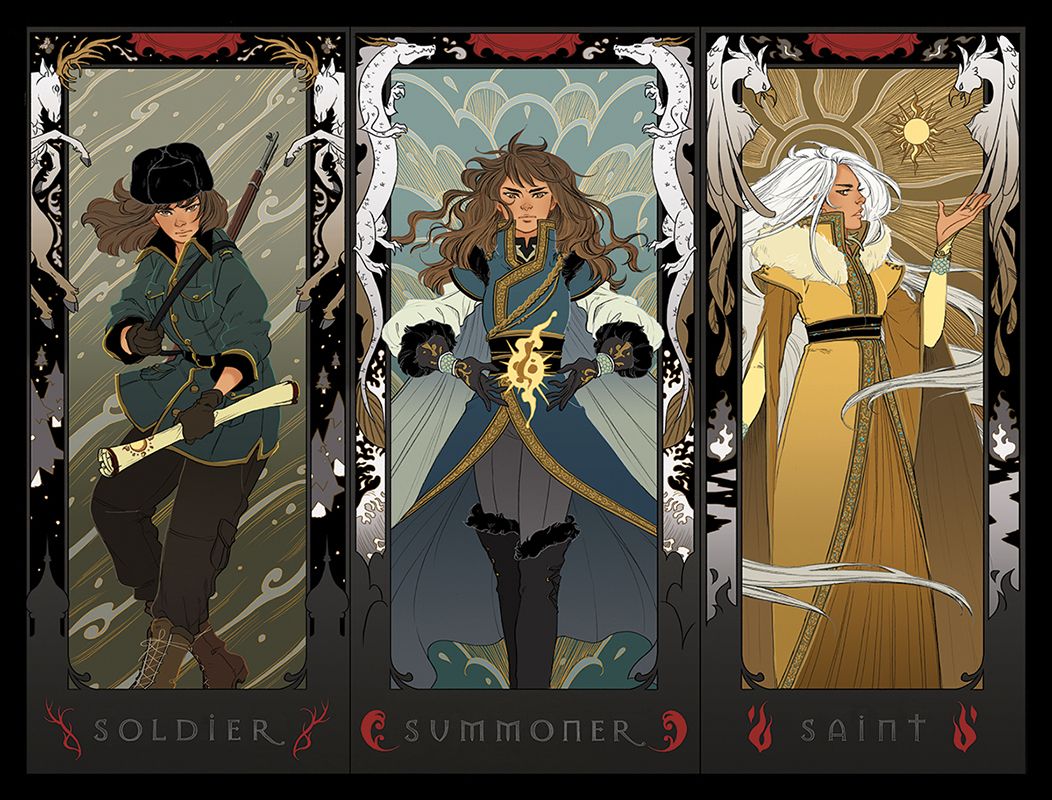
Spoilers for the Grisha trilogy follow! Duh!
In preparation of the release of Shadow and Bone on Netflix on April 23rd, 2021, the novel was nominated for a readalong at the start of this month. The plan was to do 7 chapters every week and finish the first book just in time for the series. As with a good fantasy, I was pulled in and I finished the first book by the first weekend and the rest of the trilogy over the next couple of weeks.
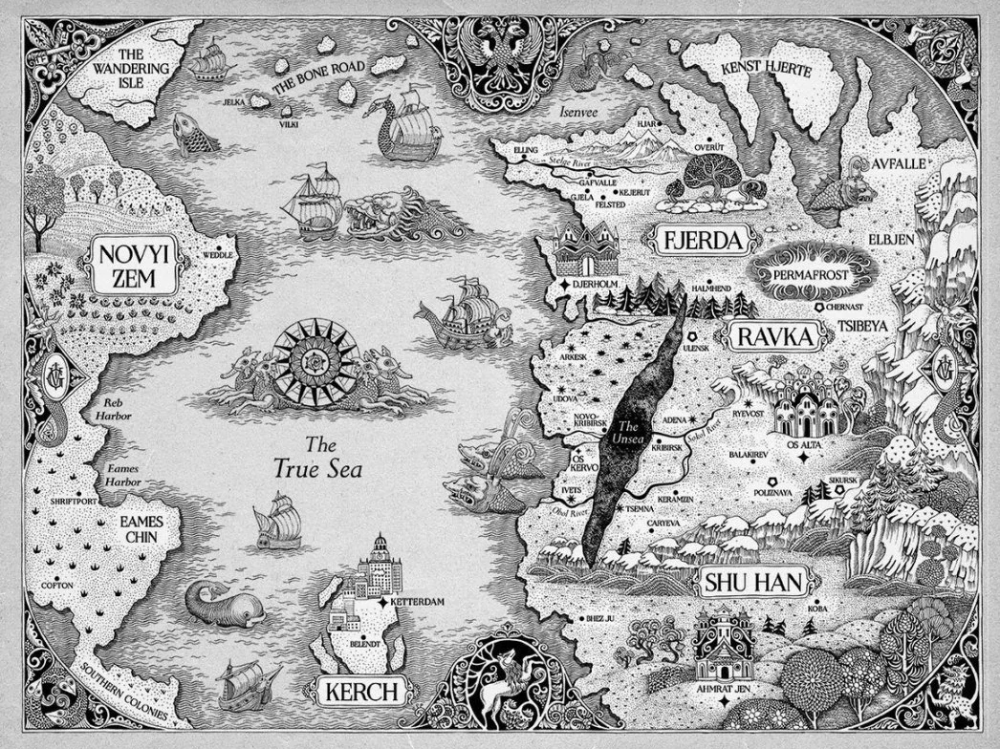
I had no idea of the books and the backdrop that the world was set in and I was pleasantly surprised. Leigh Bardugo kept the books short and to the point. There were a few parts that seemed like dragging but it pulled through to setup or add to the world.
The World
The World of the Grisha trilogy is intriguing with it's main countries, Ravka, Shu Han and Fjerda. There are hints of inspiration by real world Russia, China and Netherlands in the languages they use in these places. I found a lot of Russian phrases in use in Ravka, including referring the king and queen as tsar and tsaritsa. In this world, a few of its people, the Grisha, have special abilities to control and manipulate Fire, Water, Air, Light, Shadow, Body and Materials. The powers seem very reminiscent of the Avatar series.
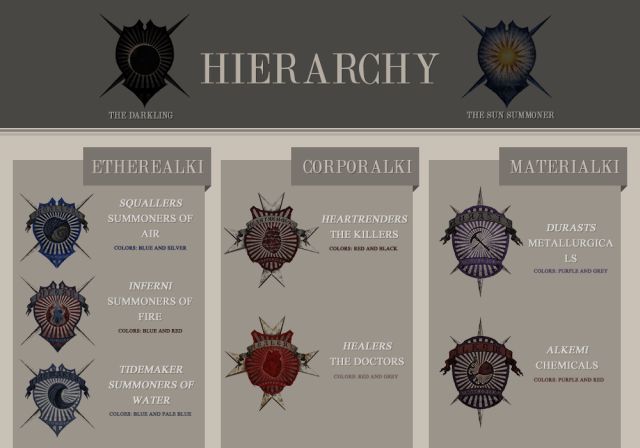
However, the regular people treat Grisha differently because of their powers as is human nature.
The Fjerdans burn us as witches, and the Kerch sell us as slaves. The Shu Han carve us up seeking the source of our power.
In Ravka, the Grisha serve in the Second Army under the King. however, the country has been split to half by the Shadow Fold, a region of darkness and shadow, populated by ravenous monsters, the volcra. This has pushed the country to constant war to its neighbors.
Shadow and Bone
The story follows Alina, who is discovered as the first and only Sun Summoner. Her powers of manipulating light can be used to destroy the Fold, making her the most important Grisha in living history and a target to the other countries as well as to the Darkling, the leader of the Grisha and the Second Army.
Pulled to a new future in the Little Palace, Alina still holds a place for her best friend, Mal. She becomes friends with Genya, who is sent by the Darkling to help her settle in. She trains her abilities under the guidance of other Grisha in the Little Palace.
The political backdrop of Ravka seems to be inspired by the Russian aristocracy. The Tsar and Tsaritsa seem to be shallow, very conscious of looks and overall very crass people. It is a wonder why they sit on the throne and yet it seems the aristocracy is strong. The representation of the aristocrats is very reminiscent of Imperial Russia and made me wonder why the Darkling even reported to them.
When I first read the series, I had a feeling the Darkling had a hidden agenda. Being supposedly 120 years old, he doesn't hesitate to flirt and seduce Alina. He seems to be crass and basically, my reaction to their first kiss was...

I actually paused briefly, but then again, I was curious to know more and be proven wrong in the Darkling's true nature. When Alina learns of his true identity as the Black Heretic, responsible for creating the Fold, I was disappointed that what I had guessed was right about the Darkling. Though I did not expect him to be as aged as he was. Guess I was also sold on the sob story of his great grandfather being responsible.
The Darkling had sacrificed the lives of villagers living in the land that became the Shadow Fold, who then became the volcra. He was motivated by the desire to make his people, the Grisha, safe and free. In this pursuit, he is ready to do anything; create the Fold and make use of it as a weapon. Rule by Fear.
“Fear is a powerful ally,” he said. “And loyal.”
The last part of the book features a fetch quest by Alina and Mal, who seek Morzova's stag, an amplifier to enhance Alina's abilities. However, unable to kill the stag, she hesitates, by which time the Darkling finds them and kills the stag himself and gives amplifier to Alina to control her.
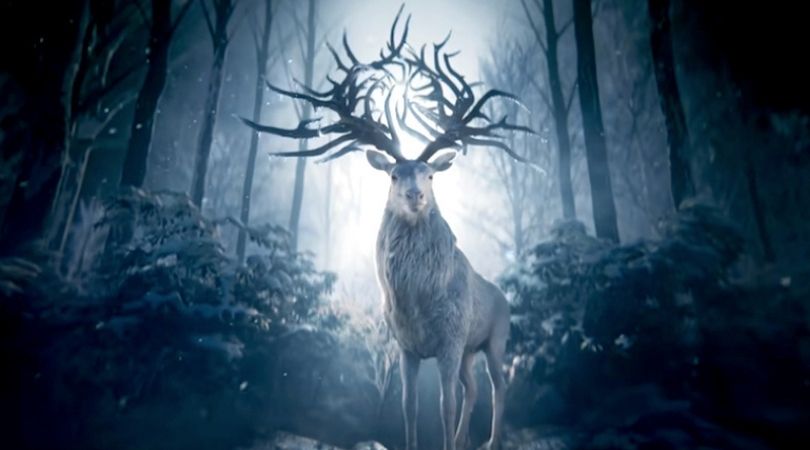
The Darkling's true intentions were use the Fold as a weapon, through which he could rule with fear and control Fjerda and Shu Han. However, Alina finds salvation in her mercy of sparing the stag, an action opposite to the Darkling's action. I was vaguely reminded of Lily Potter and her sacrifice that saved Harry Potter. In this case, it was not sacrifice, but being ready not to sacrifice. It was quite close and just in the last chapter that the situation manages to flip itself and Alina manages to escape from the Darkling.
Seige and Storm
The second book starts with Alina and Mal in hiding. However, this doesn't last long as they are soon found out by the Darkling, who captures them and takes them on a journey to find a second amplifier. The Darkling intended to enhance Alina's powers further by the use of Morzova's other two amplifiers, a sea whip and a firebird.
Also, the Darkling has a corrupted use of Small Science, which allows him to summon creatures of shadow. He demonstrates to Alina by making a nichevo'ya attack her. The merzost seems to represent the level to which the Darkling is ready to go to maintain power. They take a toll from him as they are a perverted use of the Small Science and against nature itself.
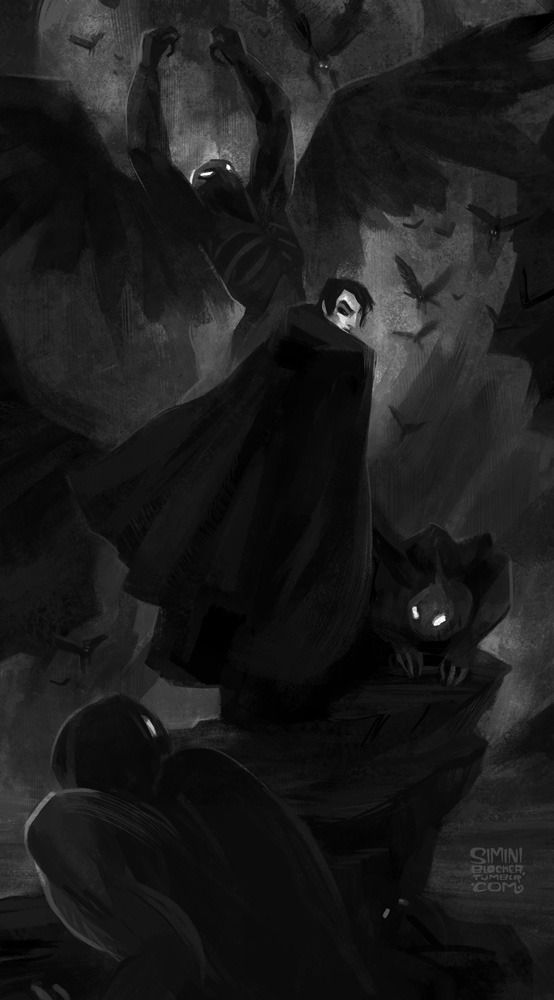
One of the best parts of the second book is the witty pirate prince, Sturmhond aka Prince Nikolai. Here is a prince, who is the exact opposite of his parents. He believes in action more than words and makes sure to serve his kingdom the best way he can. I always looked forward to scenes with him as there was always something humorous, witty or deeply meaningful in store.
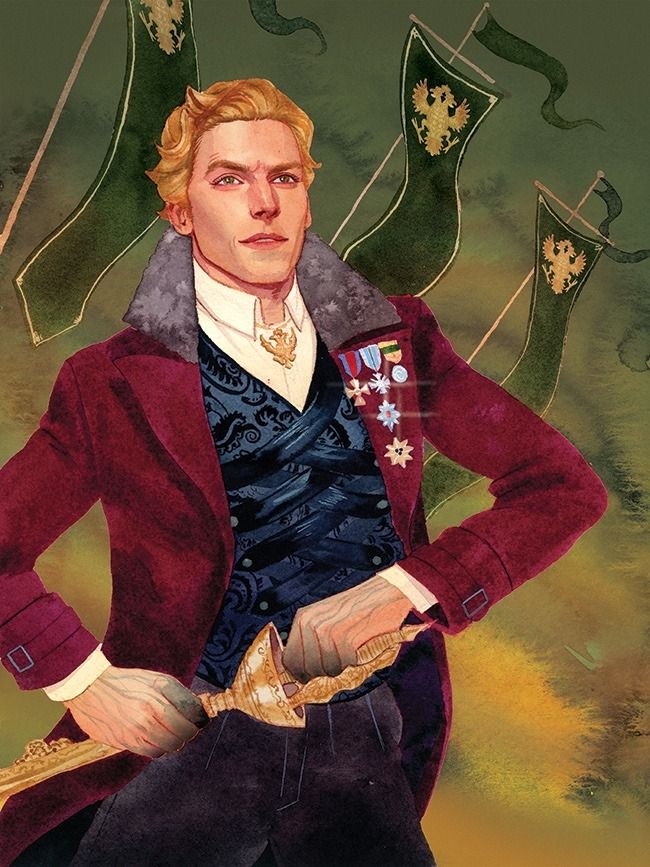
Nikolai and his crew help Alina escape the Darkling and this time again she makes her way to the capital. There as Alina takes over the Second Army and prepares them for battle, she is haunted by dreams of the Darkling. The mark by the nichevo'ya that binds her to him.
We see another side of the Palaces and politics with Nikolai. He works hard to prepare for the upcoming fight against the Darkling, but finally is undermined by his own elder brother, Prince Vasily, who feels insecure about his succession.
This leads to the final act with the Palace Siege. We see everything fall apart because all the plans for defense were laid with the idea of a fair warning before the attack. All well laid plans are a waste if you aren't prepared at the moment of battle. The Darkling finds a way into the capital city because of Vasily's arrogance and his jealousy that opens the path for him and his army.
What follows is an intense third act. In the chaos and the fight, many of the Grisha and humans are killed. Alina tries a last ditch attempt to sacrifice herself by using merzovst through the Darkling and trying to kill him. She almost succeeds but is pulled away by Mal and is taken underground by the Apparat's people.
Ruin and Rising
This book starts out in the underground tunnels, where Alina and her friends have escaped to. An interesting aspect of the novel is it's portrayal of faith through the cult that has formed around Alina. Considering her a Saint, a lot of people in the country follow the Apparat and are ready to dedicate their lives to her cause. However, what seems a bit off is crewmates of Sturmhond (Nikolai), Tolya and Tamar are also supposed followers. This was revealed at the end of the previous book with hints strewn all over. But I guess the reach of religion is not limited to the shores or West Ravka alone.
Restricted to the underground by the Apparat, Alina cannot use her powers because she doesn't have access to the sun. Even though her power is to summon light, it is strange that now her power is dependent on the sun and not local light sources. Also, as a side effect of her sacrifice, she can now control shadows.
After making an escape from the Apparat, she, Mal and a few of the Grisha make their way to the west. With the Darkling at the throne, the idea was to rendezvous with Nikolai using the knowledge Tolya and Tamar have from their smuggling days. However, Nikolai doesn't turn up at the meeting spot and they get captured at the camp. Luckily, they are rescued by Nikolai (a slight plot convenience, which we can afford coz it is near the town of their usual meeting), who takes them to his base in the mountains. This was how he was able to evade capture and where the King and Queen are also based.
There is a bit of respite in the mountain base. There is a bit about justice for Genya, which feels a bit satisfying. She has been through a lot under the king and the Darkling and it is good for her to get some much deserved justice. We even get to meet Baghra and get some exposition on Morozova and his amplifiers. Turns out, he is the Darkling's grandfather. Baghra also had a sister, who she accidently killed using the cut. But she was resurrected by their father, an act for which the villagers had thrown them into the river for fear of Morozova's powers and his daughter's unnatural life.
As Nikolai proposes to Alina, to make a strong political relationship, we come to the Ruin part of novel. With Sergei's betrayal, the base is exposed to the Darkling, who attacks with his creatures and his Grisha. Nikolai is turned into a monster and it is only by Baghra's sacrifice, that Alina and Mal make their escape with Tolya, Tamar, Nadia, Zoya, Genya and David. They make their journey to find the firebird in the North.
It turns out that the firebird was not the third amplifier. It was Mal. He is the descendant of Baghra's sister, with the power of the merzovst running through him. Morozova had turned his daughter to the third amplifier to save her. That was a twist I did not expect but the signs were all there from the first book. Further, what surprised me was how the three amplifiers worked together. Instead of amplifying Alina's powers, they released her of it and turned otskazaya
I'm ruination
The death of the Darkling was quick and there in the shadows really unexpected. I did think there would be a showdown of light and dark creatures (maybe something the show will go for). For the amount of death and ruin in the novel, I expected there to be more destruction in the end and a bittersweet feeling. I did not expect the novel to end on a happy note. You can say that Alina and Mal pondering the loss of their powers as the bitter part, but a small price to pay compared to the gruesome end that could have been waiting for them.
Understanding the Darkling
When I finished the series, I empathized with the Darkling. Here is an immortal, who despite being powerful can do nothing to free a race of persecuted people, his people. He has seen how his people have been persecuted, hunted, tortured and killed. He gets himself a position by the King. He created the Fold to give the people a reason for working with the Grisha and built an army as a safe place for his people.
Yet they are the "Second" Army, a class of people that will always be feared for their powers. Humans do not like to be inferior to anyone and what they cannot conquer, they fear and persecute. This is what drove the Darkling to take extreme measures and use Alina in the way that he did.
"It is better to be feared than loved, if you cannot be both."
- Niccolò Machiavelli
The Darkling knew that with time all wounds would be healed. An ideal future would come when he would be both feared and loved. So, he was ready to be as ruthless as needed to build a better future.
It seems in despite his age, he was not able to work out a plan for his survival, something smart and cunning, not as crude and destructive as he was going for. On the other, it does represent his psychological nature of a repressed boy ready to lash out to the world that persecuted him.
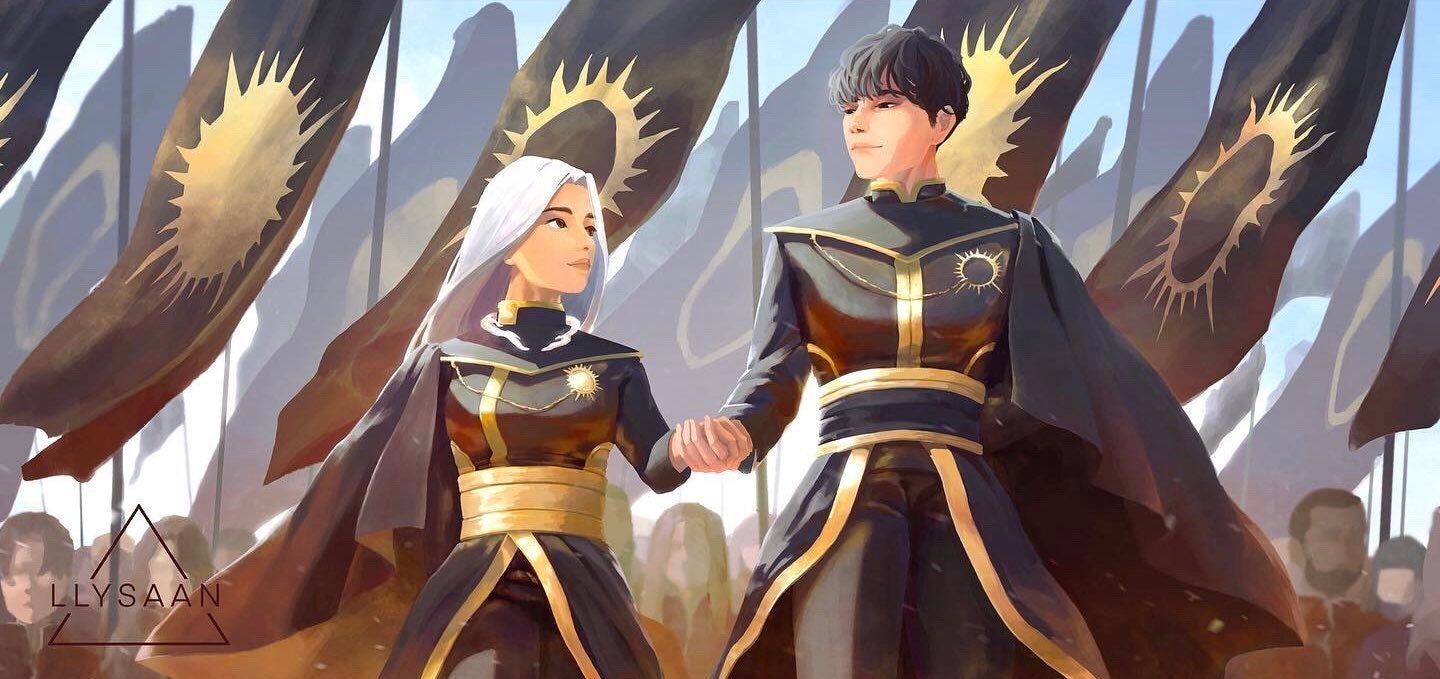
But maybe Alina could have offset his destructive nature. What if Baghra hadn't warned Alina? The Darkling's vision was valid. His means were ruthless. But what is the life of a few more men compared to the vision of a warless future that he was trying to accomplish?
Final Thoughts
I find that Leigh Bardugo keeps her third act, esp. the finally chapter really intense, always living up to the book's titles. She did establish an amazing fantasy world, with a political structure and persecution of a sect of people that is very reflective of our real world. She did deal with a lot of these topics with certain nuance.
It is satisfying for our heroes to get a peaceful life they deserve. However, it seems the Darkling was dealt a bad hand, a fact that I think the author did not know how to conclude upon.